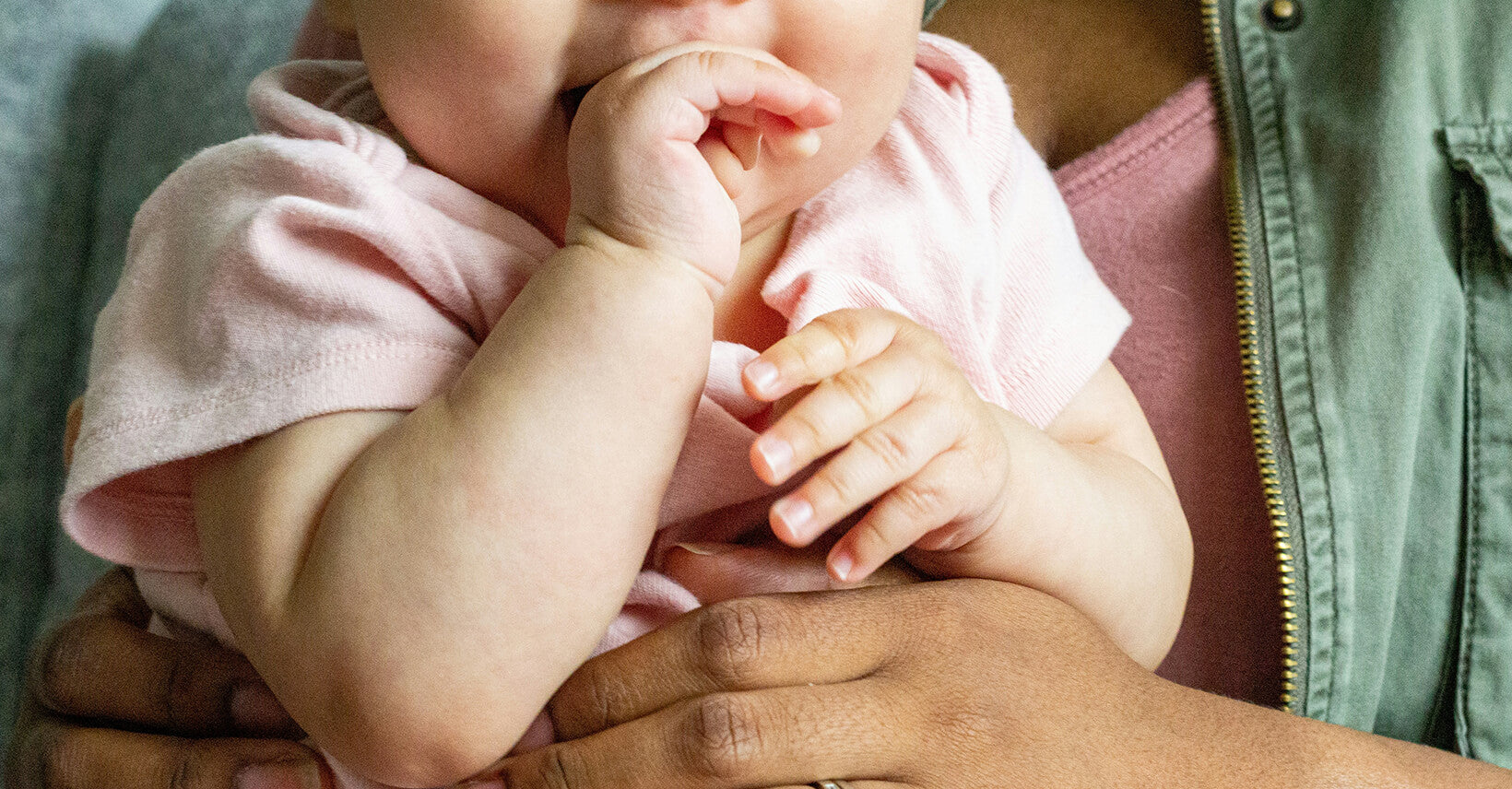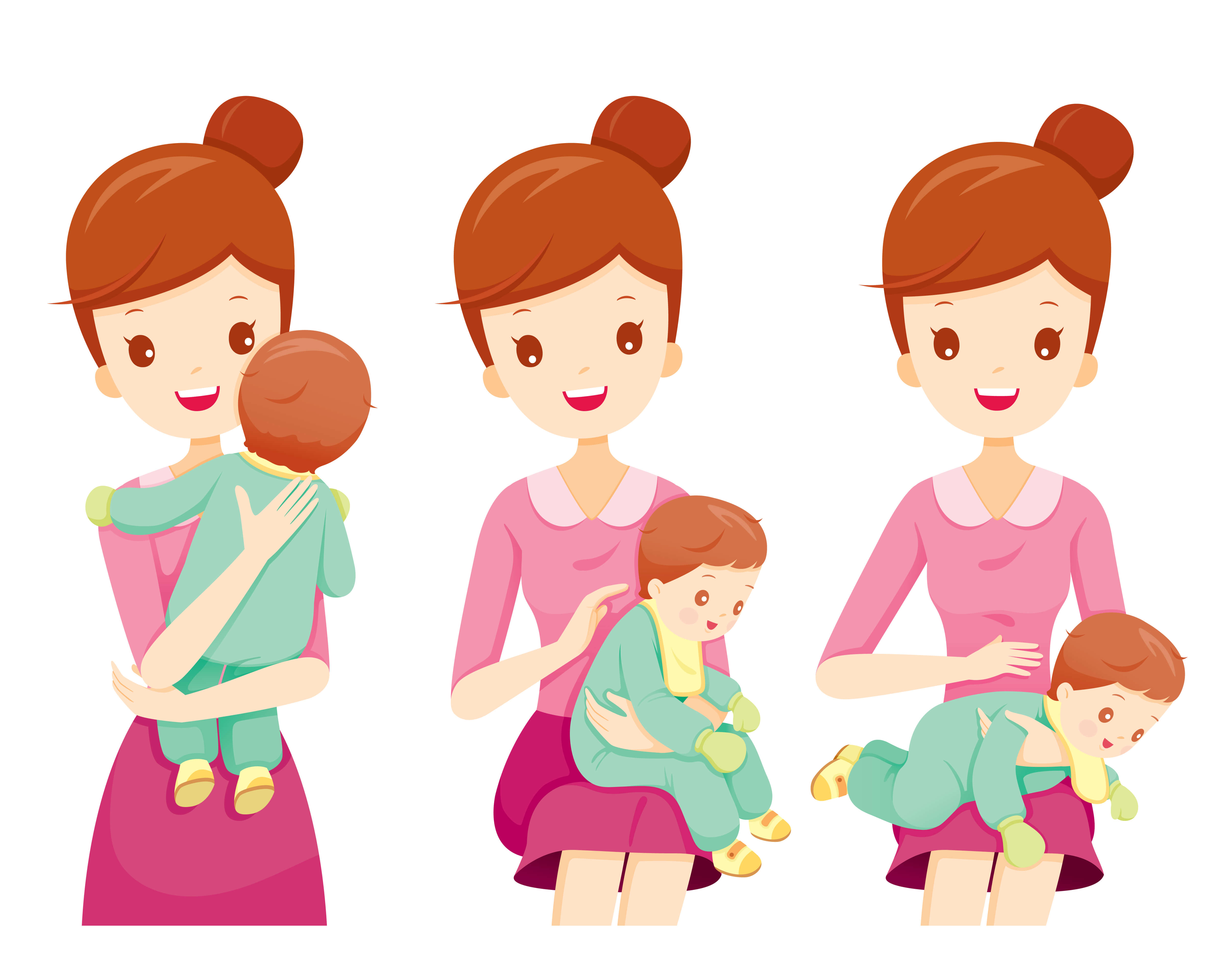


For many new parents, they need to help burp their babies. Burping helps to release gas from your baby's tummy and reduces discomfort and irritability after drinking milk. Many newborns swallow air while breastfeeding, leading to a buildup of gas that can cause discomfort.
Moms and dads can help ease their babies’ discomfort and promote digestion by burping their babies during or after feeding. Learning how to properly burp an infant is an important thing for every parent to do to ensure the baby’s comfort and health.
Why do babies need to be burped? This is because babies often swallow air while drinking breast milk, causing gas to build up in their stomachs. This trapped gas in your baby's stomach can make him or her feel uncomfortable and irritable, making it difficult for him or her to settle and sleep.
That is why parents need to help their babies burp. Burping helps to release the trapped air in your baby's stomach, relieving them of discomfort and promoting digestion. It's a natural process that helps keep your baby comfortable after breastfeeding.
If your baby doesn't burp after feeding, this is normal. Sometimes babies don't need to be burped at all, or they have already expelled the gas during breastfeeding. In this case, moms and dads shouldn't force their babies to burp excessively.
However, if your baby seems uncomfortable or has stomach flatulence, you can try gently patting or rubbing your baby's back for a little longer. Also, helping to change your baby's position may help. Parents need to always be patient and watch their baby's reactions carefully, as every baby is different. If your baby still feels uncomfortable, you can consider consulting your pediatrician.
Some parents may don’t know how to properly burp a baby, Here are some tips for you:
Hold your baby upright on your chest or shoulders and support your baby's head and neck with one hand while gently patting or rubbing your baby's back with the other hand.
Try different burping positions, such as over-the-shoulder, sitting on your lap, or lying face down across your lap, to see which works best for your baby.

Pay attention to your baby's reactions, such as fussing or squirming, which may mean that they need to be burped. Burping your baby in the middle of a feeding and after a feeding will help prevent discomfort.
Gently but firmly pat or rub your baby's back, starting at the bottom of the baby’s back and gradually up to the shoulder blades. Be patient and give your baby time to burp. It may take a few minutes of gentle patting for them to expel the gas.
If your baby hasn't burped after a few minutes, try switching positions or taking a break and trying again.
Avoid overfeeding your baby as this can cause more gas and discomfort. Take a break during feeding and let your baby burp to allow them to digest properly.
Stay relaxed and calm when burping your baby as they will sense your stress or tension. A soothing environment can help babies relax and expel gas more easily.
Note: Every baby is different, try different techniques to find the best way to burp your baby comfortably.
Burping a sleeping baby is a bit more challenging and parents need to be gentle to avoid waking the babies.
One way is to lay your baby prone on your lap, hold his head in your hand, and gently pat or rub his back. Another way is to carefully pick your baby up and sit him against your chest while keeping his head supported, then gently pat or rub his back.
If your baby hasn't burped after a few minutes, you can let him go back to sleep and stop burping him. However, if your baby wakes up and looks uncomfortable or has gastric distention, then try to help them to burp. Always prioritize your baby's comfort and health, you can wait until they wake up to burp them properly.
Burping a baby can take from a few seconds to a few minutes. It depends on factors such as the baby's age, feeding style, and individual needs.
In general, parents can try burping their babies for several minutes after each feeding. If the baby burps quickly or seems comfortable without burping, there is no need to continue burping for a long time.
Be sure to pay attention to your baby's reaction and adjust the burping time accordingly. Sometimes, babies may take longer to release trapped gas and other times, they may not need to be burped at all. Observe your baby carefully and decide how long to burp for.
You can stop burping when your baby no longer needs help from parents to burp or can burp on their own. Usually, as babies get older and feed more efficiently, they swallow less air, which reduces the need for frequent burping.
Most babies are ready to stop burping by 4 to 6 months of age as their digestive systems mature.
However, every baby is different, so it's important to keep an eye on their status. If your baby always burps on their own during or after feedings and seems comfortable without burping, parents can gradually reduce or stop burping their babies.
In short, every parent needs to master the techniques of burping babies. By understanding the importance of burping and learning proper burping techniques, parents can help alleviate their babies’ discomfort and promote their digestion. It may take some time to find what works best for each baby, and parents must be patient and attentive.
Remember that every baby is unique, so what works for one baby may not necessarily work for another. With time and practice, parents can get the point of how to burp and ensure that their babies are comfortable and healthy after each feeding.

Lily Hou
An expert in sleep sack design, is a valued contributor to Kaiya Baby's blog. With a strong background in baby sleep bags and maternal care, she is highly regarded for her professionalism. Lily prioritizes baby comfort and safety in her designs, using high-quality materials. Her insightful articles on sleep bags have been featured in reputable publications and have gained a significant readership. Trust Lily to help you create a comfortable and safe sleep environment for your baby, backed by her proven track record in the industry.
Leave a comment
This site is protected by hCaptcha and the hCaptcha Privacy Policy and Terms of Service apply.